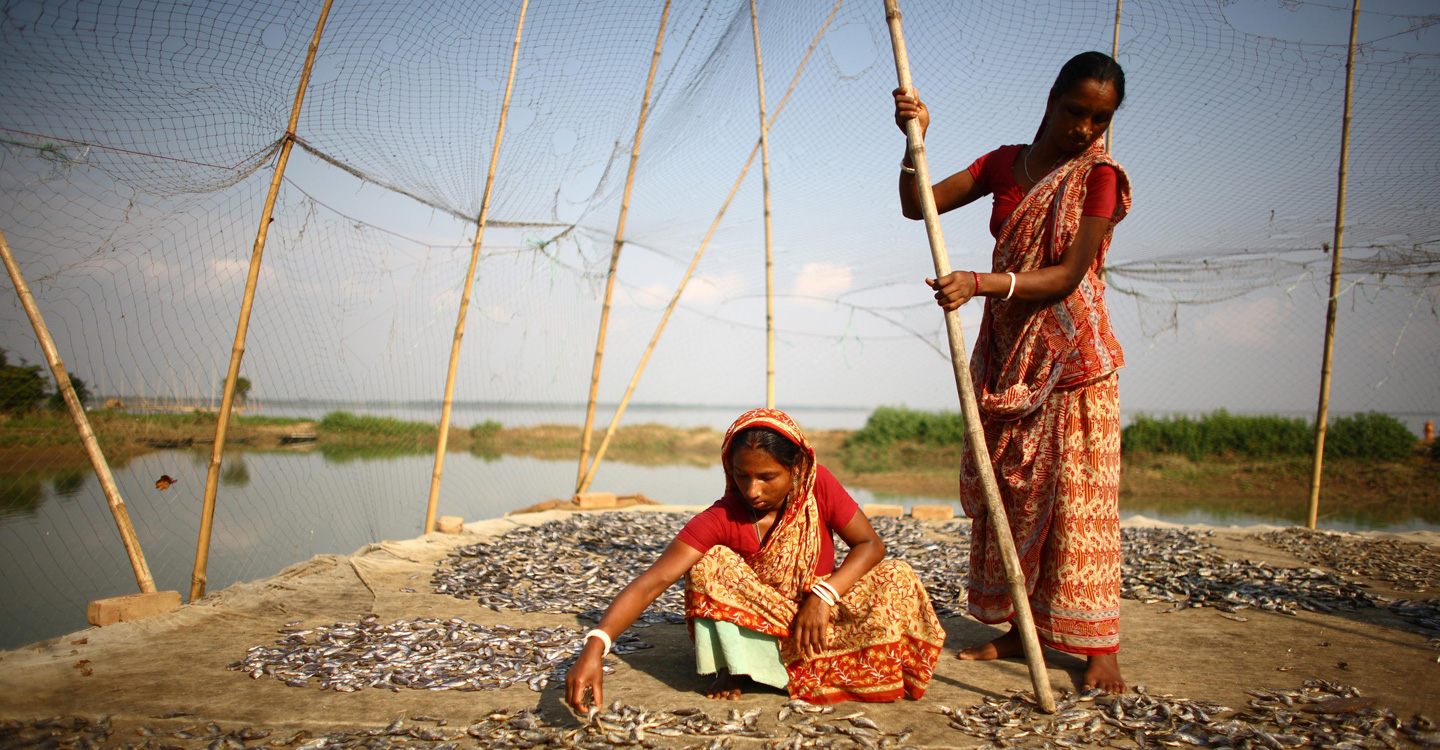ميزة الاستثمار في مصايد الأسماك المستدامة وتربية الأحياء المائية والمجتمعات الساحلية
IFAD Asset Request Portlet
ناشر الأصول
ميزة الاستثمار في مصايد الأسماك المستدامة وتربية الأحياء المائية والمجتمعات الساحلية
المقدر للقراءة دقيقة 4
©IFAD/G.M.B.Akash
More people are eating fish across the world. Since 1961, the annual global growth in fish consumption has been twice as high as population growth. This is one sign that the fisheries sector is crucial for enhancing healthy diets, as fish are a valuable source of nutrients and micronutrients. It also is one of the most important sources of animal protein, accounting for about 17 per cent globally.
While aquaculture production is growing rapidly throughout the world, particularly in Asia and Africa, many of the world’s fisheries are at grave risk from human pressures, including overexploitation, pollution and habitat change. Climate change is intensifying these pressures, posing very serious challenges and limiting livelihoods opportunities.
We are aware of these challenges, and that is why IFAD is taking action not only to avoid exacerbating these pressures, but also to address them and to promote initiatives that contribute to make the fisheries sector more sustainable. In Angola, for instance, IFAD is supporting longer-term fisheries governance in order to tackle the challenges of overexploitation caused by bad fishing practices and destructive gear. Implemented in areas with a large number of lakes, the project works to reduce poverty in artisanal inland fishing and small-scale fish-farming households in target communities, benefitting 15,000 people.
In India, we have deployed 200 artificial reefs for developing fish habitats in 12 selected sites in Tamil Nadu state, where coastal fishing communities suffered major losses in the big tsunami of 2004. Both a preliminary report and local fishers indicate that the reefs have improved the fishery potential of certain groups of fish such as perch and carangids. The direct beneficiaries are the small-scale hook and line fishers, who have reported an almost 50 per cent increase in incomes attributed to reef fishing, and significant reduction in boat fuel consumption.
In Djibouti, an IFAD-supported project is engaging with communities through participatory natural resource management to restore mangroves and preserve coral reefs, which are vital for fish stocks and help mitigate greenhouse gas emissions. Fisheries value chains affected by climate change are also benefiting from renewable energy equipment, ice plants and coolers/insulated containers to improve the conservation of fish products.
Throughout our operations in the Global South, local communities have been provided with valuable skills for improving the fisheries sector and their own livelihoods. We have undertaken training to strengthen their capacities in production and value addition. In addition, we have run awareness-raising campaigns for households about the nutritional benefits of fresh fish. These campaigns have also promoted the optimal conservation conditions of seafood, appropriate hygiene in the preparation and consumption of food, and the repair or acquisition of cold storage equipment.
Over the past four decades, IFAD has acquired strong expertise and built a major comparative advantage in fisheries and aquaculture, supporting more than 100 projects addressing aquatic and coastal zone resources in at least 36 countries. We aim to increase our involvement in the sector, and that is why we have included a fisheries component in many of our upcoming projects.
Read more examples of innovative approaches achievements and lessons from the growing portfolio of investments in fisheries and aquaculture to promote sustainable fishing practices in the Fisheries and Aquaculture Advantage report.
تاريخ النشر: 14 نوفمبر 2019